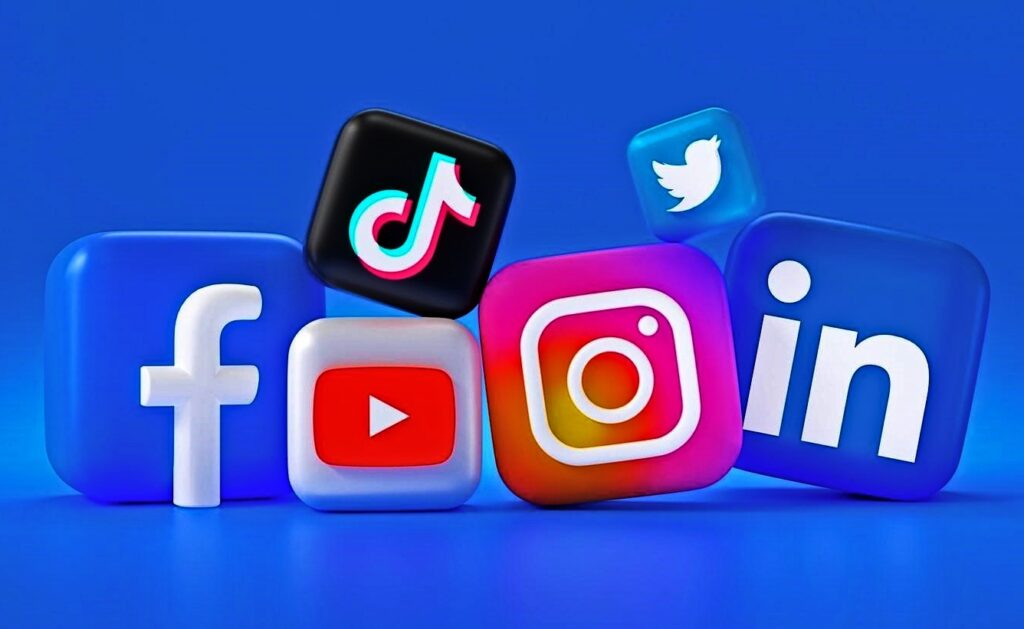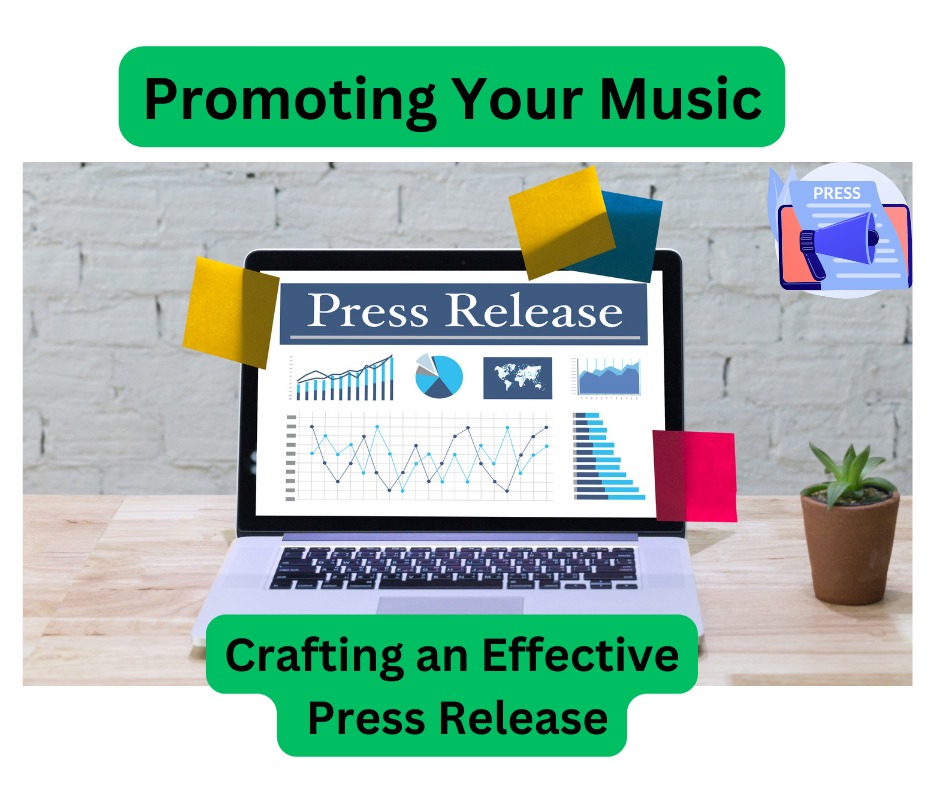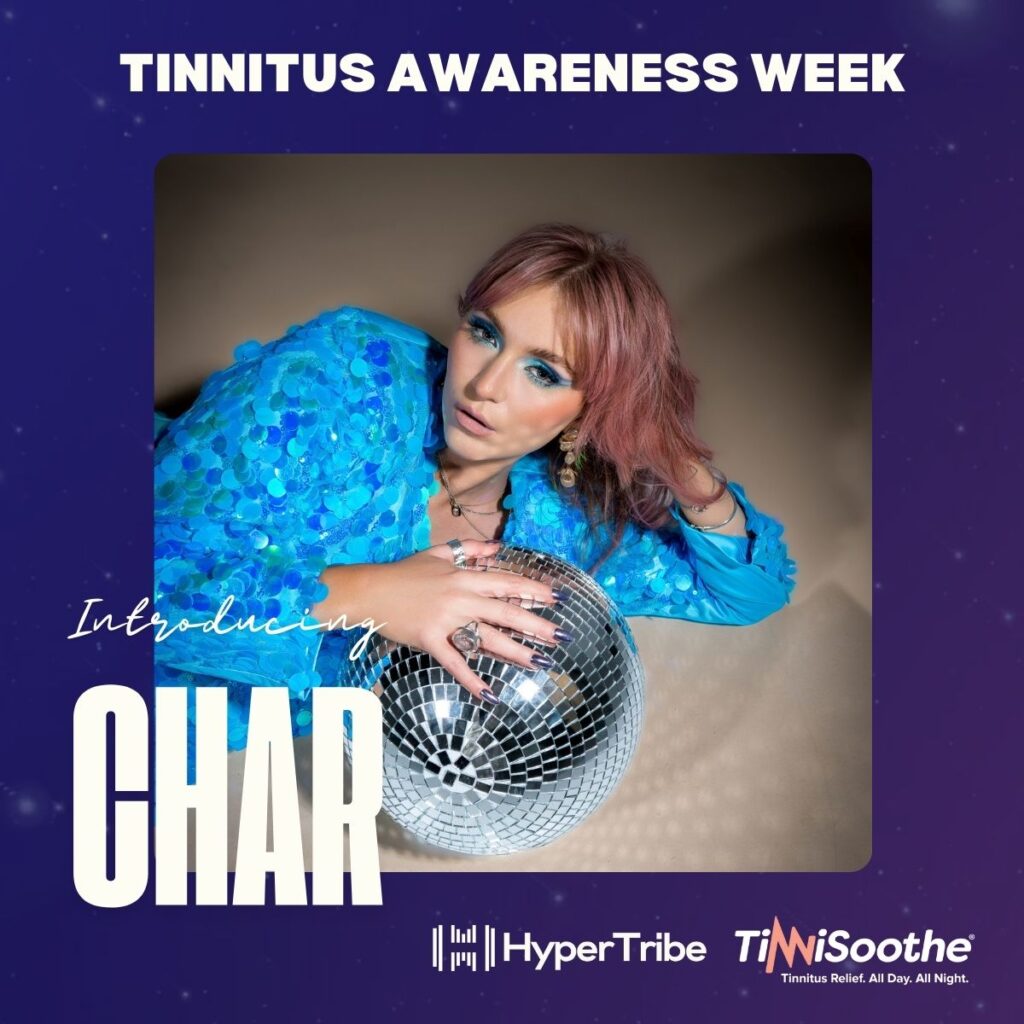Understanding the Importance of Self-Promotion for Musicians
Why Self-Promotion is Essential for Musicians
In the cutthroat music business, performers must actively promote themselves if they want to be noticed and booked. It lets you take charge of your profession and reach more people. Promoting yourself will help you to highlight your ability, get supporters, and raise your chances of success. Regardless of your level of skill, without good self-promotion, your music could go unheard.
The Benefits of Effective Self-Promotion
Regarding your music promotion, there are various advantages to bear in mind. First and most importantly, good self-promotion lets your music be more widely heard and seen.
Promoting yourself aggressively will raise your chances of being discovered by potential fans, music bloggers, and business leaders. This may provide fascinating prospects like features, partnerships, and even record deals.
Self-promotion also helps you to develop your brand and highlight your artistic approach. It lets you share your creative vision with the world and identify your identity as an artist. Constant promotion of your music and interaction with your fans will help you build a reputation as a credible and identifiable artist.
Moreover, self-promotion helps you to seize charge of your musical profession. You may aggressively market yourself and create events rather than depending only on others to help your music be heard. This degree of autonomy enables you to make calculated judgments, choose the appropriate venues to forward your music, and personally interact with your target market.
All things considered, good self-promotion presents artists with many advantages. It enables you to establish your identity, get a larger audience, and take charge of your music business. Developing your self-promotion techniques can help you raise your chances of success and open interesting prospects for yourself in the music business.
Common Challenges in Musician Self-Promotion
For many artists, self-promotion is an intimidating chore. It’s about getting your music noticed by the proper audience as much as it is about producing outstanding music. Finding the time and effort to market oneself while simultaneously emphasizing one skill is one of the typical difficulties musicians have. One might arrange to give self-promotion top priority and set aside specific time for marketing activities.
Getting noticed in a packed music business is even another difficulty. There are so many gifted musicians fighting for attention; thus, it’s crucial to discover original approaches to highlight your ability and stand out from the others. One might arrange to investigate creative marketing ideas and novel advertising approaches.
Finally, attempts at self-promotion may be hampered by self-doubt and rejection-oriented anxiety. Putting your music out there naturally makes one vulnerable, but resolutions help one overcome these worries and grow to have a confident attitude.
Building Your Brand as a Musician
Defining Your Unique Musical Identity
Defining your own musical identity requires time for you to investigate your creative vision and approach. To discover what most speaks to you, try several genres, sounds, and approaches. This self-discovery approach will let you produce a unique sound that distinguishes you from other performers.
Think about your own experiences, feelings, and ideals as well to give your song authenticity. Maintaining your authenticity will draw a devoted following of those who value your real artistic ability.
Think about the following to help you develop your musical identity:
- List your musical inspirations and research their methods to get ideas and understanding.
- Discover many topics and ideas that speak to you and then use them in your songs and images.
- Try many instruments and production methods to create a distinctive auditory palette.
Recall that your musical identity is being defined constantly. Your identity could also shift as an artist develops and matures. Accept this trip of self-discovery and let it inspire your music in fascinating new directions.
Creating a Compelling Artist Bio
Your artist bio is among the most valuable instruments in your toolkit for marketing yourself as a musician. Your chance to introduce yourself to potential fans, business leaders, and the media is presented in this little paragraph or two. It should include a quick summary of your artistic background, what distinguishes you, and the main ideas of your work.
Defining your musical personality can help you to produce an interesting artist bio. You specialize in what genre or genres? Which songs impact you musically? What makes your sound unique? Clearly defining your musical style and inspirations can help viewers to understand what your work offers.
Then concentrate on writing a bio that is interesting and instructive. Emphasize your achievements—that instance, any honors, chart positions, or noteworthy performance. Talk about any features or partnerships with other musicians. Additionally don’t overlook any fascinating or unusual personal information about oneself that helps to humanize your business.
At last, maintain current with your artist bio. Update your bio with any fresh successes or benchmarks as you keep developing and changing as a musician. This will demonstrate your active pursuit of a musical profession and maintain your bio current and relevant.
Recall that initial impressions people will have of you as a musician usually come from your artist bio. Spend some time carefully creating a strong and instructive bio that fairly captures your personality and skills.
Designing an Eye-Catching Logo and Visual Identity
As a musician, establishing your logo and visual identity calls for a distinctive and aesthetically pleasing presentation of your brand. Your logo will represent your music and assist you to stand out in a saturated field. This approach demands great attention to detail as every component of your logo should capture your musical taste and character.
Think through the following actions to create an arresting logo:
- Research: Seek out ideas from other bands or artists you respect. Examine their logos and visual identities to learn what distinguishes and works for them.
- Keep your logo basic and easily identifiable: Steer clear of clutter it from too many features or complex designs that would be difficult to grasp at first look.
- Select a color palette fit for your brand and music: Colors may assist in communicating the genre and atmosphere of your music since they arouse feelings.
Developing a strong visual character transcends a logo. It entails constant application of typefaces, colors, and images throughout all of your marketing products including website design, social media postings, and record covers. Your music brand’s recognizable and professional image will be created in part by this coherent visual identity.
Creating an Online Presence
Building a Professional Music Website
Creating a quality music website requires careful thought in many important areas. Your website should first and most importantly capture your own musical personality. This implies selecting a design that fits your genre and taste and giving your music front stage on the site great prominence.
- Furthermore crucial for your guests are basic details such as your profile, discography, and forthcoming activities. Think about adding a press kit or EPK (Electronic Press Kit) with premium images, musical samples, and any press coverage you have gotten.
- Make sure your website is mobile-friendly and simple to traverse to guarantee a flawless customer experience. This will let industry experts and supporters view your materials on any gadget. Finally, don’t overlook unambiguous calls to action like registering for your mailing list or buying your music.
- Establishing your internet profile and presenting your skill to the world depends on you first building a professional music website.
Utilizing Social Media Platforms
For artists trying to interact with their audience and advertise their work, social media channels have become a necessary tool. Platforms like Instagram, Facebook, and Twitter, with billions of users globally, provide artists great opportunities to present their skills and grow a following. Effective use of these platforms helps artists establish a strong online presence and interact meaningfully with their audience.

For artists trying to interact with their audience and advertise their work, social media channels have become a necessary tool. Platforms like Instagram, Facebook, and Twitter, with billions of users globally, provide artists great opportunities to present their skills and grow a following.
Effective use of these platforms helps artists establish a strong online presence and interact meaningfully with their audience. By utilizing these platforms effectively and engaging with your fans, you can create a loyal fan base and increase your chances of success in the competitive music industry.
Engaging with Fans through Email Marketing
Developing a devoted and committed fan base is much enhanced by interacting with your supporters using email marketing. Sending consistent updates and unique materials straight to their email can help you establish a personal relationship and keep them interested in your music.
One good approach is to trade their email address for a free download or exclusive access to fresh music. This benefits your supporters as well as helps you expand your email list, which may be very useful for the next campaigns.
Still, another important component of email marketing is segmentation. You may customize your communications to certain groups of followers by separating your email list into many sections depending on geography, music tastes, or degree of participation.
This lets you provide more customized material and raise conversion possibilities.
- One effective instrument for advertising your music is a well-made email newsletter. These suggestions can help you to create more successful newsletters:
- Emphasizing the most crucial changes and announcements, keep your mailings brief and direct.
- Catch your readers’ attention with strong subject lines, then inspire them to open your emails.
- To make your emails more pleasing, include images such as live performance pictures or album artwork.
- To let followers easily interact with your material, connect your music, forthcoming events, and social network accounts.
Email marketing is about creating a real relationship with your listeners as much as it is about advertising your music. Show your thanks, reply to their communications, and help them to feel a part of your path. Email marketing allows you to interact with your fans to build a strong and committed following that will assist you all through your musical career.
Promoting Your Music
Crafting an Effective Press Release
Promoting your song depends critically on a good press release. It lets you tell your followers and the media significant news about your most recent publications, forthcoming events, and other stuff. A well-written press release may create excitement and interest in your music, therefore raising exposure and chances.

Strategic preparation helps one to produce a strong press release. This entails figuring out your target audience, deciding on the main points you want to get across, and writing a gripping narrative. Effective planning and structuring of your press release will help you to maximize its influence and raise the possibility of media attention.
Getting Your Music Featured on Blogs and Playlists
Getting your music included on blogs and playlists can dramatically boost your visibility and reach after you have produced it and are ready to release it to the public. Powerful tools for connecting with fresh listeners and broadening your fan base include blogs and playlists.
These techniques help you raise your chances of having your song played:
- Investigate and target relevant blogs and playlists; spend some time looking for ones that fit for your genre and musical taste. Search for venues with a comparable clientele to your intended group.
- Networking and developing rapport with bloggers and playlist curators can greatly raise your chances of having your song played. interact with them on social media, go to trade shows, and send tailored messages expressing your desire to be highlighted.
- Submit your music professionally: Make sure you properly present your music following their submission rules when sending it to blogs and playlists. Along with a strong press release and links to your music, include a little introduction to yourself and your work.
- Consider providing specials or incentives to appeal to bloggers and playlist curators of your music more. This may be giving them early access to your forthcoming releases, unique materials, or offers to help promote their platform in exchange.
- After you send your music, follow up with a kind and customized note thanking them for giving your song some thought. Developing a professional and friendly rapport with bloggers and playlist curators could provide future chances for showcasing your music.
Recall that having your music included on blogs and playlists not only raises your profile but also generates cash via higher streaming and downloads. These techniques including developing ties with influential people in the music business can help you increase your chances of having your music played and a larger audience reached.
Collaborating with Influencers and Other Artists
Expanding your audience and getting your music noticed may be greatly accomplished by working with other musicians and influencers. Working with people who have a significant following and impact in the music business will help you to reach their audience and present your work to fresh audiences. Increased exposure, more streams and downloads, and maybe even chances for live events and joint projects follow from this.
Working with other artists and influencers calls for finding the proper match. Look for people with a similar aesthetic or musical taste as this will help the cooperation to be more real and flawless. Think about also their audience’s size and involvement. Although working with a mega-influencer might sound appealing, typically greater results come from working with someone with a smaller but very active following.
Once you have possible partners, get in touch to send a customized note. Describe why you respect their work and how you think cooperation would help both of you. Approach with sincerity and authenticity; also be receptive to their opinions and recommendations. Recall that cooperation is two-way, hence it’s crucial to strike a balance that benefits both sides.
Clearly defining objectives and expectations is crucial when working with other artists and celebrities. Talk about what you want to get out of the cooperation—more publicity, additional fans, or a particular artistic result. Create reasonable deadlines and schedules, then be transparent all through the process.
Finally, don’t overlook the need to encourage teamwork after it is finished. Share it in your email newsletters, post on your social media sites, and inspire your supporters to visit it. Using collaborations to their best advantage can help you to reach fresh audiences and grow your fan base.
Networking and Building Relationships
Attending Music Industry Events and Conferences
Developing your network and getting visibility as a musician depends critically on attending conferences and events in the music business. These gatherings provide great chances to network with potential fans, other performers, and business leaders. In the music business, networking is essential, hence going to these events lets you meet individuals who can further your career.
Experienced experts can teach you; you can also get an understanding of the newest business trends and maybe work with other artists. This is an opportunity to present your ability and leave a lasting impression.
Connecting with Music Industry Professionals
It’s time to start engaging with people in the music business after you have developed your musical identity and produced a strong artist bio. Expanding your network and obtaining insightful information and prospects depend on this phase. In the music business, knowledge is power; hence, developing partnerships with people with experience and knowledge can help your career far in advance.
Here are some ways you could interact with people working in the music business:
- Go to conferences and events in the music business to network with experts from several spheres of business.
- Contact experts in your field using web tools like LinkedIn and professional music forums.
- Email or social media direct contacts with experts, introducing oneself and showing interest in their work.
Remember, it’s crucial to approach people in the music business with professionalism and respect. Show real enthusiasm for their job and be honest in your contacts. Creating deep connections may open doors and provide priceless direction and encouragement on your path as a musician.
Building a Supportive Network of Fellow Musicians
Your development and success as an artist depend critically on networking and developing rapport with other artists. In the music business, cooperation is essential; by interacting with other artists, you may exchange resources, grow personally, and even co-create incredible music together.
There are many ways you may create a supporting system:
- Go to conferences and music business events to network with professionals and like-minded people.
- Participate in conversations, ask questions, and get advice by joining internet groups and forums devoted to musicians.
- Get in touch with artists you respect and indicate your desire for either simple connection or collaboration.
Recall that developing connections calls both time and work. Be sincere, encouraging, and ready to help out the community. Surrounded by a network of other musicians, you will have a support system that recognizes the particular difficulties and rewards of being an artist.
Networking and building relationships are crucial for success in the music industry. Whether you’re a musician, producer, or aspiring music professional, connecting with others in the field can open doors and create opportunities. At HyperTribe Ltd, we understand the importance of networking and offer valuable resources and insights to help you navigate the music industry.
Our blog is dedicated to providing tips and tricks on how to access the music industry, featuring interviews with professionals and advice from our founder, Kimmy Dickson. Stay updated with our regularly published articles and start your journey to a successful career in music. Visit our website to learn more and join our Membership and community of music enthusiasts.



